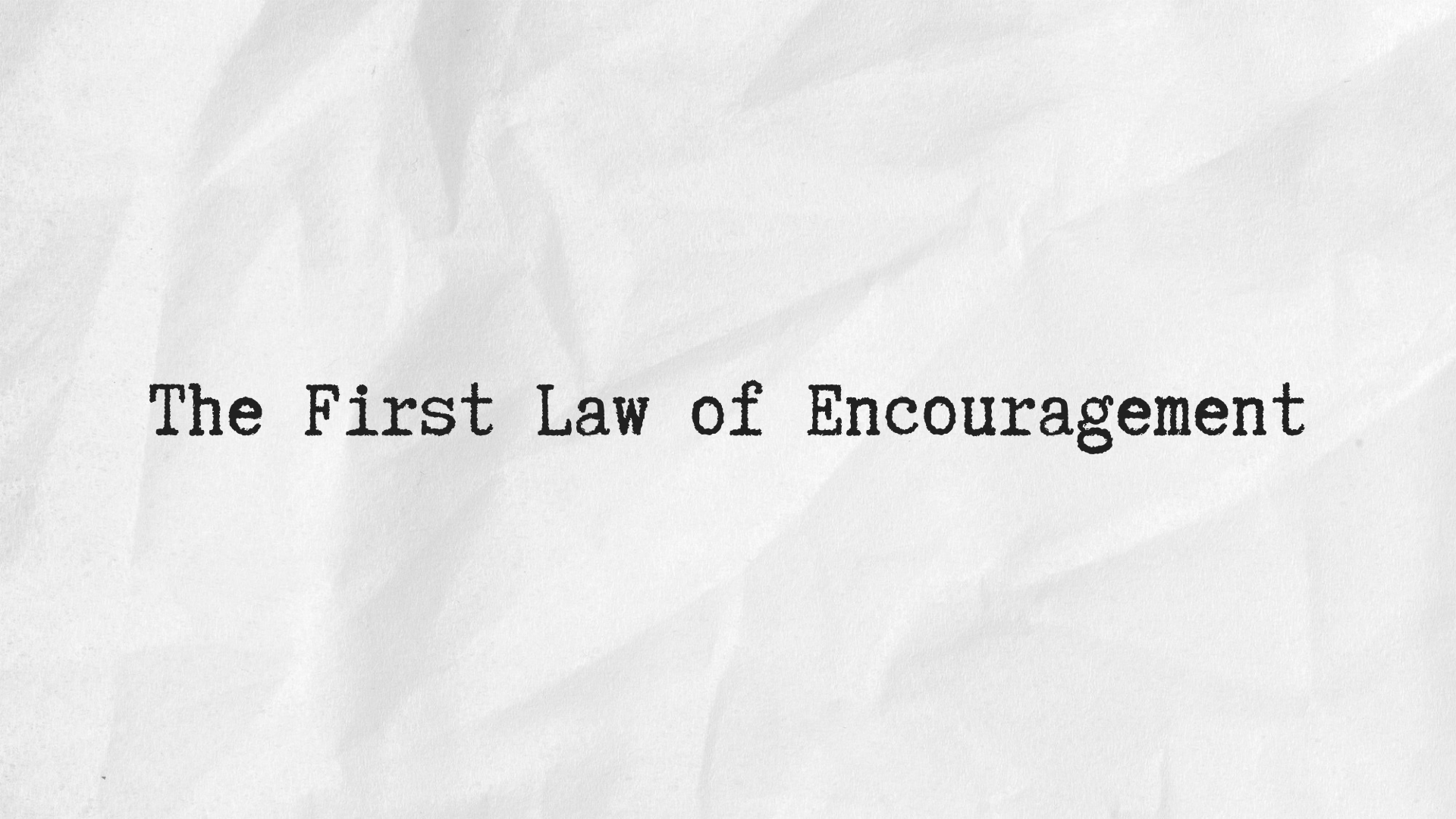Our Weird Witness
Our Weird Witness
“You will receive power when the Holy Spirit has come upon you; and you shall be My witnesses both in Jerusalem and in all Judea, and Samaria, and as far as the remotest part of the earth.” ~ Acts 1:8 (NASB)
If you’re like me, when I think of being a witness, my mind immediately begins to think about words.
Witnesses tell stories and stories require words, therefore being a witness of Jesus Christ means using your words to tell His story. If that’s where your mind goes too, you’re not wrong. Words matter. Even a cursory reading of the New Testament undermines any notion that words are just words. Words matter and the scriptures take issue when the same mouths that praise God in one breath then curse human beings made in God’s image in the next (James 3:9-10).
However, as much as our words matter, what we see in the New Testament is that along with our words, the power and veracity of our witness is supplemented in a number of other, not necessarily verbal ways. This doesn’t undermine what we just said about words mattering – it simply means that being witnesses of Jesus Christ involves more than just using the correct theological lingo.
In fact, what we see throughout the story of the early church is that some of the most compelling evidence for the truthfulness of the gospel came through the presence of events and actions words can barely describe.
It wasn’t niceness, politeness, good manners, or a positive cultural etiquette that caught the attention of the first century. More than anything else, in addition to their words it was their weirdness.
More often than not, what got people’s attention and gave legs to their testimony was the presence of things within the early Christian community that just should not work, should not exist, and should not be possible.
Let me give you an example. In Acts 2, the Holy Spirit is poured out upon the remaining Jesus followers and suddenly, each of them finds themselves proclaiming the mighty works of God in languages they’ve never learned, languages they don’t speak. When the globalized crowd around them hears their preaching, this is their response:
“Utterly amazed, they asked: ‘Aren’t all these who are speaking Galileans? Then how is it that each of us hears them in our native language?”’ ~ Acts 2:7-8 (NIV) For what it’s worth, some also wondered if they’d had a wee bit too much wine…
It’s easy for us to breeze past the remark, “Aren’t all these who are speaking Galileans,” and see it simply as a question of astonishment. However, given their culture’s attitude toward Galilee, this wasn’t just a question, but a statement of offense. It was a backhanded, underhanded question rooted in judgment.
Galilee was treated as the backwoods of Israel. The sophisticated and learned lived in Jerusalem, not Galilee. The people of Galilee were considered rabble-rousers and roughnecks, people who couldn’t cut it in the more cosmopolitan, enlightened places of the world. No self-aware aristocrat or person of significant social status would dare live there.
To ask, “Aren’t all these who are speaking Galileans,” wasn’t merely a question – it was indignation. It was shock. Surely these kinds of people couldn’t know these kinds of languages.
Let this comment and the surrounding interactions settle in your mind for a moment: they very thing these Galileans were despised for (being Galilean) is the very thing that made them worth listening to. Rather than hurting their witness, their weirdness, their outsider-ness strengthened it!
Taking this a step further, if we look back upon Jesus’ ministry, we can actually see Jesus prophetically preparing the world for this moment.
Throughout the 4 gospels, Jesus began to gather the very people who at Pentecost would become the shocking “Galileans” that spoke in new, unlearned languages. He gathered around himself that have-nots and nobodies, the sick and the sinful. Everyone from harlots to housewives, religious extremists to faithless tax-collecting traitors all discovered the same unfathomable truth: their checkered pasts did not make or break whether they could be counted as one of Jesus’ people.
And from where did Jesus gather this hodgepodge collection of nobodies you might ask?
Mainly from Galilee.
He didn’t just call unlikely people to Himself; He called these unlikely people from an unlikely place – from Galilee.
Jesus started his movement, laid the foundation of His church, and placed the message of the gospel in the hands and mouths of men and women who the world had already written off.
The decision that should have ended Jesus’ movement before it even began is now part of the evidence turning heads and changing hearts through the power of the Holy Spirit.
“Aren’t all these people Galileans?”
Our modern sensibilities seem to have forgotten that what is reasonable rarely raises questions and what is logical is unlikely to stir up curiosity.
If our lives look mostly consistent with the world around us, if what they see, hear, and experience from us looks largely in line with how they already live, love, and think, why should anyone want what we have? In fact, if the lives of those who follow Jesus and the lives of those who do not look mostly the same, why should anyone think we have something they don’t?
What made the church so compelling was not what they had in common with their culture, but what was uncommon; what was strange, unlikely, and, well, weird.
Does this mean every aspect of culture is bad and should be resisted? Of course not! Please don’t hear that. Where we can affirm our culture, we need to affirm it. Where we can celebrate our culture’s values, we should celebrate them. When a particular people in a particular place have a cultural value or good that is in line with the gospel, we should certainly embrace that common space together. God has not placed his church within culture to war against it, but to witness to it – to join Jesus in God’s loving pursuit of the lost. A fter all, we’ve been given a ministry of reconciliation, not retaliation.
This isn’t about being different for the sake of being different, difficult, or better than the world around us – it’s about being aligned with the way, truth, and life of Jesus so that the world around us might see Him in us.
And sometimes, that means we’re going to look a little weird in the process.
To be honest, I’m not sure what our modern counterpart would necessarily be, but let’s start living in such a way that the world might once again ask, “Aren’t all these who are speaking Galileans?” And when they do, let’s make sure we tell them about Jesus.
Sunday Morning Service Times:
9:00 AM Traditional
10:30 AM Contemporary
About:
Here at Deer Lake, we want to be the church IN the Community, FOR the Community to the glory of God and for the sake of the world.








